The aim of the Integrative Medicine Network Forum is to convene the Boston-wide integrative medicine community, strengthen our local connections, and provide an environment for seeding new ideas and opportunities through shared learning and networking.
At this year’s third IM Network Forum, we presented and discussed current views on the importance of inherited genes, and the modification of genetic information by the environment and
behavior.
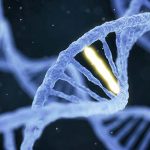
There is great current excitement with the genome and “personalized” medicine in which treatments are tailored to individual patients’ genes.

At the same time, a very active area of research is showing that the expression of genes is not fixed, but can be modified by environmental factors, and that these modifications can be passed down to future generations.
 Although such genetic modifications can be harmful, exciting new research is suggesting that it can be beneficial as well. In particular, self-awareness, learning and behavior changes can counteract gene expression patterns that predispose to disease.
Although such genetic modifications can be harmful, exciting new research is suggesting that it can be beneficial as well. In particular, self-awareness, learning and behavior changes can counteract gene expression patterns that predispose to disease.
Program
Time: 8:00 am – 2:00 pm (On-Site Registration Opens at 8:00 am)
8:00 am: Registration
Welcome & Introduction
Keynote: (Dr. George Church)
Short Talk Presenters (Drs. Kathryn Hall, Olivia Okereke, Manoj. Bhasin)
Panel Discussion and Audience Q&A
10:30 am: Break & Posters
Short Talk Presenter (David King)
Town Hall – Audience Q&A
Research Oral Medley Presentations
Poster Awards
Conclusion of Proceedings
12:30 pm Lunch, Posters & Networking
1:00 pm Facilitated Networking Groups
2:00 pm Close
Keynote Speaker
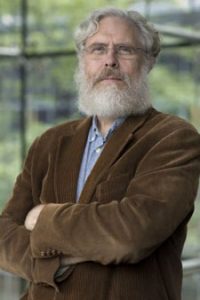 George M. Church, PhD ’84, is Professor of Genetics at Harvard Medical School, a founding member of the Wyss Institute, and director of PersonalGenomes.org, the world’s only open-access information on human genomic, environmental, and trait data. Church is known for pioneering the fields of personal genomics and synthetic biology.
George M. Church, PhD ’84, is Professor of Genetics at Harvard Medical School, a founding member of the Wyss Institute, and director of PersonalGenomes.org, the world’s only open-access information on human genomic, environmental, and trait data. Church is known for pioneering the fields of personal genomics and synthetic biology.
He developed the first methods for the first genome sequence & dramatic cost reductions since then (down from $3 billion to $600), contributing to nearly all “next generation sequencing” methods and companies.
His team invented CRISPR for human stem cell genome editing and other synthetic biology technologies and applications – including new ways to create organs for transplantation, gene therapies for aging reversal, and gene drives to eliminate Lyme Disease and Malaria. Church is director of IARPA & NIH BRAIN Projects and National Institutes of Health Center for Excellence in Genomic Science. He has coauthored 450 papers, 105 patents, and one book, “Regenesis”. His honors include Franklin Bower Laureate for Achievement in Science, the Time 100, and election to the National Academies of Sciences and Engineering.
Short Talks and Panelists
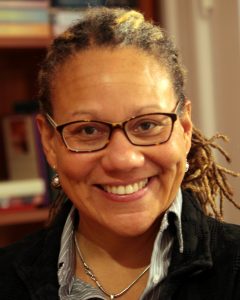 Kathryn T. Hall, PhD, is a molecular geneticist with training in epidemiology and experience in pharmaceutical drug discovery. She is a graduate of the Harvard Medical School (HMS) NIH T32 Research Fellowship in Integrative Medicine. She is an Assistant Professor in Medicine at HMS and an Associate Molecular Biologist in the Division of Preventive Medicine at Brigham and Women’s Hospital (BWH) and also the Director of Placebo Genetics in the Program for Placebo Studies based at Beth Israel Deaconess Medical Center and HMS.
Kathryn T. Hall, PhD, is a molecular geneticist with training in epidemiology and experience in pharmaceutical drug discovery. She is a graduate of the Harvard Medical School (HMS) NIH T32 Research Fellowship in Integrative Medicine. She is an Assistant Professor in Medicine at HMS and an Associate Molecular Biologist in the Division of Preventive Medicine at Brigham and Women’s Hospital (BWH) and also the Director of Placebo Genetics in the Program for Placebo Studies based at Beth Israel Deaconess Medical Center and HMS.
Dr. Hall’s area of excellence is in the pharmacogenomics of placebos and supplements, with an emphasis on aspirin and vitamins in cancer and cardiovascular disease prevention. Response to placebos and supplements vary widely across individuals, and new evidence, from her group and others, suggests that genetic variation plays a key role in the response magnitude. Dr. Hall’s research program aims to identify and leverage the functional effects of supplement and placebo response genes (the placebome), to optimize clinical trials and placebo effects in the clinic.
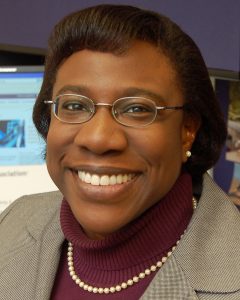
Olivia Okereke, MD, MS is a Board-certified geriatric psychiatrist and Associate Professor of Psychiatry and Associate Professor of Epidemiology at Harvard Medical School and the Harvard T. H. Chan School of Public Health. She is Director of Geriatric Psychiatry and Director (Research) of the Geriatric Psychiatry Clinical and Research Program at Massachusetts General Hospital.
Dr. Okereke’s programmatic goals are: (1) to identify modifiable risk factors involved in adverse mental aging and (2) to translate and apply knowledge gained into strategies for large-scale prevention of late-life depression and cognitive decline. Her research portfolio has been supported by numerous National Institutes of Health, University and foundation awards. Currently, she is: evaluating the role of dietary factors, such as vitamin D and omega-3, along with novel biologic markers in relation to risk of late-life cognitive decline and depression; testing effects of nutritional interventions on late-life mood in large-scale randomized trial settings; and addressing relations of later-life depression and anxiety to molecular markers of biological aging, with attention to their potential contributions to disparities in health and aging. Dr. Okereke is active in efforts to promote knowledge in geriatric mental health. She regularly provides education on healthy brain aging at community centers, Councils on Aging, and senior centers around Massachusetts. She has served on both the Board of Directors and the Medical & Scientific Advisory Committee of the Massachusetts/New Hampshire Chapter of the Alzheimer’s Association, and has been a Past Chair of the Chapter’s Annual Meeting.
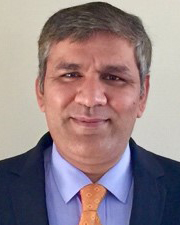
Manoj K. Bhasin, PhD is an Assistant Professor of Medicine at Harvard Medical School (HMS) and Director of Bioinformatics and Systems Biology at Beth Israel Deaconess Medical Center (BIDMC) (Boston, MA, USA). He is also a co-Director of BIDMC, Genomics, Proteomics, Bioinformatics and Systems Biology Center and Senior Investigator at HMS Vascular Biology Center. He is also Associate Senior investigator at Benson-Henry institute (BHI) for Mind Body Medicine in Boston.
Dr. Bhasin is an experienced genome and systems Biology investigator with a strong track record in computational vaccine design, functional genomics, proteomics and systems biology with over 100 scientific publications, multiple patents and copyrighted softwares. He used the power of cutting edge genome and epigenome along with systems biology approaches to identify key pathways and genes associated with beneficial effects of mind-body interventions, which elicit the relaxation response (RR). In collaboration with BHI, his group identified that NF-kB—a key immune system regulator—and its upstream and downstream pathways as central in the response to mind-body approaches. His group has also used the power of BigData and Genomics to develop evidence based next-generation Ayurveda and supplement formulation for management of multiple chronic diseases.
Moderator
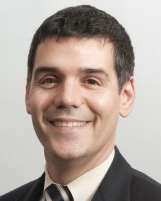
John Denninger, MD, PhD is Director of Research at the Benson-Henry Institute for Mind Body Medicine at Massachusetts General Hospital. He also serves as Associate Director of the MGH-McLean Adult Psychiatry Residency Training Program and Instructor of Psychiatry at Harvard Medical School.
Dr. Denninger has received many awards for his research and teaching, including the NCDEU New Investigators Award and the Harvard Medical School Students Award for Teaching. Dr. Denninger’s work overseeing the Benson-Henry Institute’s research program explores the relationship between stress reduction, resiliency enhancement and health in both clinical and basic domains. His research focuses on answering two questions about mind-body medicine interventions: (1) Assessing how well these interventions can help to promote wellness in a broad range of people and (2) determining how these interventions work, by exploring details of mechanism from genes, to biochemistry, to physiology, to brain activity.
FAQs
Download PDFs for the following:
- Directions
- Parking Please note: There is no parking available at the venue.
- Harvard Longwood Campus Map
- Area Map (hotels)
Event Details
Date: Friday, November 16th, 2018
Time: 8:00 am – 2:00 pm
Venue: J. B. Martin Conference Center, Harvard Medical School
Address: 77 Avenue Louis Pasteur, Boston, MA, 02115
For more details contact: Aterah Nusrat or Jessica Kaufman at [email protected] or call 617.525.3204.










